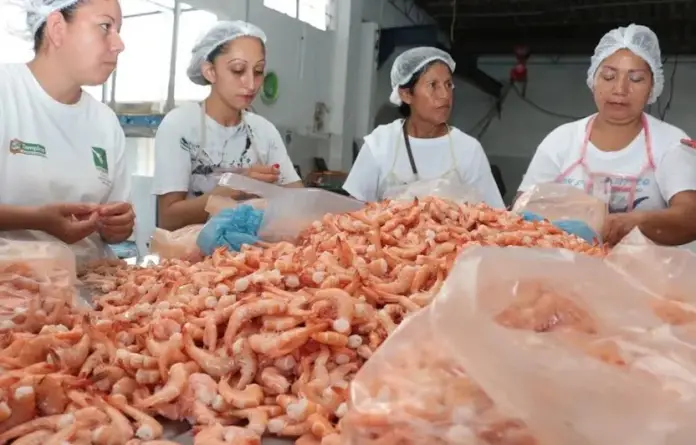Tamaulipas is seeking to recover the splendor of the so-called “pink gold” by boosting deep-sea shrimp production to prevent the industry from collapsing, as it faces an unprecedented crisis.
Fifty of the 180 vessels in the deep-sea shrimp fleet did not set out to fish for the crustacean last year because the activity is becoming increasingly less profitable.
The Undersecretary of Fisheries for the Government of Tamaulipas, Jorge de Jesús Montagner Mendoza, said that the Federal Government and the State are seeking to reach agreements with shipowners to prevent the industry from collapsing.
“Fewer vessels are setting out because there won’t be significant catches, and it has to be affordable for them. So, instead of dividing the production among 180 vessels, they do it among 130, and that helps them improve their profitability.”
He noted that the shipowners are all from Tampico, generating an economic impact of nearly 600 million pesos and more than 10,000 direct and indirect jobs, including crew, choppers, suppliers, mechanics, welders, and others.
The offshore shrimp farming industry is 80 years old and in the 1980s became the second largest source of foreign currency, after oil.
The official acknowledged that the sector is experiencing its worst crisis due to a series of factors that have been affecting it, and last year, drought was added to its list of problems.
The lack of rainfall impacts the availability of the species, as it reproduces in the lagoons before going out to sea to complete its growth cycle.
However, the Undersecretary believes that the main complication facing shipowners is the high cost of diesel, as it increases their production costs, in addition to the competition they face.
“We seek to assist the federal government to prevent Mexican products from competing on unequal terms with other Central American countries and the United States.”
Montagner Mendoza mentioned that business leaders are also demanding more effective surveillance operations to curb illegal fishing on the high seas, which is why the state government, he stated, is providing personnel for these efforts.
During his participation in the recent forum “The Future of Mexican Shrimp,” Miller Alexander Longoria, president of the National Chamber of Fishing and Aquaculture Industries, provided an overview of the crisis.
He said that low profitability, competitive disadvantages in the markets, the deterioration of the fleet, and the lack of resources for investment are impacting the industry.
Diesel prices rose 212% between 2016 and 2025, and it is an input that represents up to 80% of operating costs. In Mexico, a liter is more expensive than in Ecuador and the United States, countries with which it competes in the marketing of the shellfish.
He emphasized that companies in the sector have become indebted and continue to face unfair competition from illegal fishing, resulting from smuggling, guatemalan trade, and low-quality imports.
They demand access to inputs at competitive prices, the rehabilitation of the mid-sea shrimp fleet, and the correction of unfair competition in the markets by halting illegal imports from Central America, South America, Asia, and the United States.

The State Undersecretary of Fisheries explained that a meeting was held last Monday in the nation’s capital, where the Mexican Institute for Sustainable Fisheries and Aquaculture Research announced to producers the potential closed seasons for shrimp this year, but their publication in the Official Gazette of the Federation is pending.
To determine these periods, the institution conducts a series of studies, using technological tools to analyze the migration of shrimp leaving the lagoons to the sea, and thus establishes recommendations for shipowners.
“During the meeting in Mexico City, it was reflected that Tamaulipas is the state that has had the best results with closed seasons, because they have been respected thanks to inspection and surveillance operations. We have good indicators, and we believe that 2025 will be a good year for shrimp fishing.”
He said the ban is important because it helps the product reach a larger market size, which increases its value by 30% to 40% and boosts the industry’s profitability.
The Undersecretary added that they are seeking to modify the ban period so that shipowners can obtain a larger catch when their boats go fishing, and the state government is seeking more mechanisms to promote the activity.
He emphasized that it is hoped that the federal government and industry leaders will soon reach an agreement in favor of the shrimp industry and prevent its collapse.

Source: milenio




